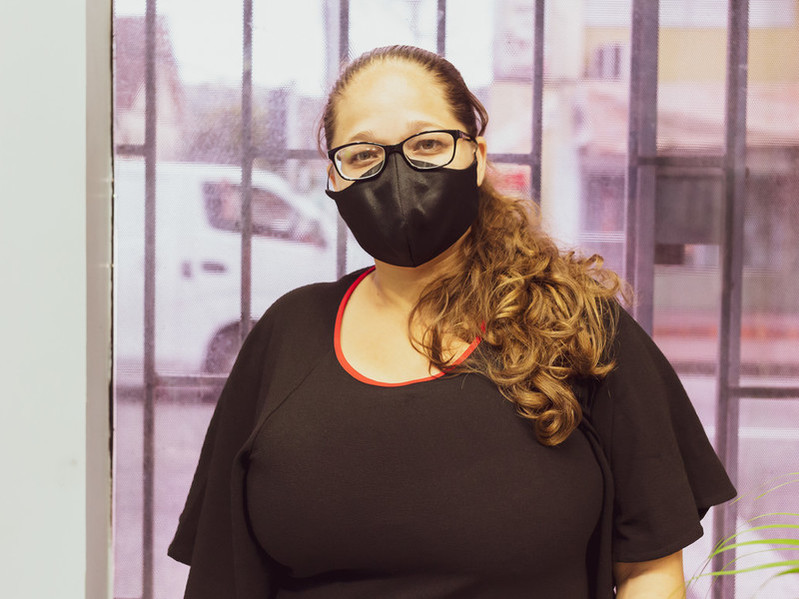Three million Venezuelans, fleeing a national crisis of economic depression and political oppression have found themselves seeking refuge in Latin America and the neighbouring islands of the Caribbean. About 40,000 of those have come to Trinidad and Tobago’s shores, with the hopes of finding a better life. Anything would be different from what they have left behind.
Neighbourhoods that once echoed the voices of playing children, were now riddled with the sounds of gunshots. Business places with broken store fronts, empty grocery and pharmacy shelves, elderly persons homeless and impoverished. Those with well-paying jobs could no longer make enough money to feed their families so walking the streets in your own neighbourhood put you at risk of kidnapping for menial ransoms.
This was the situation in Cumana Sucre that caused Marina Lopez to flee with her husband and two daughters in 2018. She was a preschool teacher and a good one at that. She loved the interaction she had with her students, seeing them grow in both knowledge and stature in their formative years, but it wasn’t enough to allay her fears of her own family’s survival. As persons living with HIV, Marina and her teenaged daughter depended on constant access to medicine and healthcare, neither of which was still accessible. With daughters in tow, Marina and her husband braved the waters in search of new life in Trinidad.
About the same time, Ana Camacho, a young mother with dreams of migrating to Canada, said goodbye to her teary-eyed mother, sisters and 12-year-old daughter. She once held a good job as an administrator in Anaco, Venezuela, but when the company closed, she could no longer make the money needed to provide. A life in Canada seemed very promising and she and a friend decided that they would work for 3 months in Trinidad to gather the funds for the move up North. However, when she gained employment in Trinidad, her mother became ill and she was forced to postpone her plans and settle on the island in order to continue working.

“Everyone was so friendly and treated us like people”
Both Marina and Ana can vividly recount the experiences that brought them to Trinidad 3 years ago. Today, they are both clients of the Family Planning Association of Trinidad and Tobago (FPATT) receiving care to meet their varying sexual and reproductive health needs.
“I was told about the Clinic from the UNHCR. They suggested that my daughter and I come here for treatment. When we got here everyone was so friendly and treated us like people. They understand us and that is so hard to find. They also referred us to the hospital in San Fernando for further treatment and it has been great since. We feel very comfortable here,” Marina disclosed.
For 34-year-old Ana, her experience at FPATT is an interesting one. “When I first heard about the Clinic, I thought I would come in for a pap smear. I was in a new country, working and sending what I made back home for my family. I didn’t want to risk getting sick so I booked an appointment to get the test. When I came in, the nurses asked me if I was pregnant, and I said no, only to find out that I was. I was shocked, but I knew that the doctors and nurses at the clinic are good people and would take care of me during pregnancy. My son is now 14 months and now I come in for my contraceptive shot. I bring my son with me and everyone treats him like their own,” she says.
Ana was also a participant in the webinar series hosted by FPATT in January 2021. The 8-module Zoom series was based on IPPF’s One Curriculum, but designed to meet the specific needs of the migrant community. Although the series covered many topics including Nutrition, Gender-Based Violence and Sexual and Reproductive Health Rights, the one module that stood out for Ana was Self Defense.
“One day I was on my way to work in a taxi and I realized that the driver was not taking the route that other drivers do. I asked him where he was going and he wouldn’t answer me. I got very scared because I was in the taxi by myself. I started to shout at him and he still wouldn’t answer me until finally he stopped and I ran out of the taxi. I went to a police station and the officer asked me what I was doing alone in the taxi. I told him that I was trying to get to work. After that, I never worked again. It’s too risky. I wish I had seen that self-defense class before that evening,” she said.
Many migrants have had similar experiences to that of Ana’s. Incidences of sexual exploitation, gender-based violence, and xenophobia are rampant among the women in the community and so they are grateful for the refuge they find at FPATT.
“In here, they genuinely look out for us,” Ana says, “and that’s different from how we are treated when we walk the street. They live up to their name as Family.”
when
country
Trinidad and Tobago
region
Americas & the Caribbean
Subject
Gynaecological, Contraception, HIV and STIs
Related Member Association
Family Planning Association of Trinidad and Tobago












